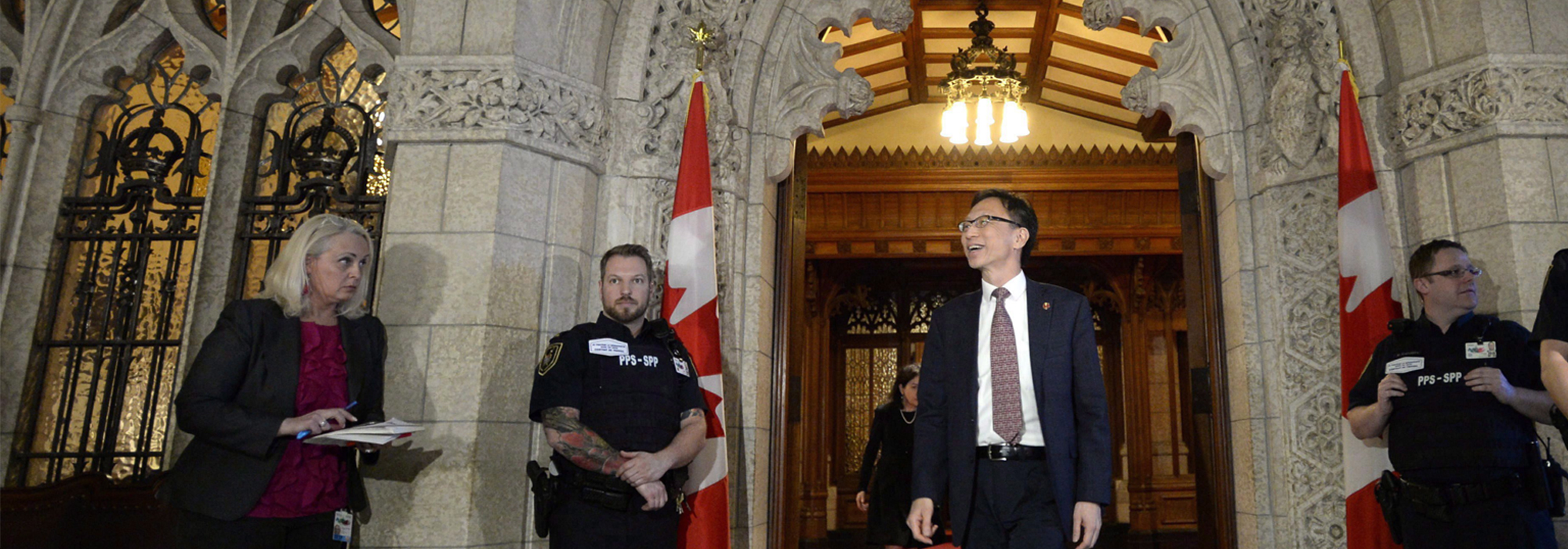
The latest Senate report card from the people of Canada has arrived. A new survey completed by Nanos Research suggests that Canadians are not yet convinced that the current Senate has made a huge difference.
According to the survey, only a quarter of Canadians have a positive or somewhat positive impression of senators. That’s hardly a number to boast about and remains unchanged compared with two years ago — even with the advent of a greater role for independent senators. The only significant change from the previous poll is an 8 percent shift away from “negative” responses into the “unsure” category.
The question arises: What does the Senate need to do to turn the dial up on its positive rating numbers? Fortunately, Canadians are equally clear about what they want from the Senate, and they have remained steadfast in their opinions on what is needed. In short, they want a more independent Senate to balance the concentration of power in Ottawa and better represent Canada’s diverse people and regions.
The Senate has the tools to make that happen, but it needs to do more to show Canadians that it’s up to the task.
The 2018 survey on the Senate shows that 84 percent of Canadians want senators to vote independently from party affiliations. In this scenario, senators would not be whipped by any party or even subdued by group pressure. They would give full and fair consideration to all matters before them. It also means that senators would not kowtow to the government or the government’s representatives as they press to get their bills passed. Independence means standing firm against all these pressures, and it is what Canadians clearly want from their parliamentary representatives.
Having government legislation and policies independently reviewed is another variation on the same theme. Fully 68 percent of Canadians continue to believe this to be an important element of a strong democracy.
No one can play this role better in today’s Parliament than the Senate. The House of Commons has sadly fallen prey to powers concentrated in the Prime Minister’s Office. This state of affairs has persisted, regardless of which political party holds office, over many decades. As a result, governments with a majority of seats in the Commons exercise extraordinary powers, with backbenchers more and more unable to take any kind of realistic stand against their own party or the majority party.
The Senate, on the other hand, can truly review government legislation and policies independently. For example, it can and does dive deeply into the details of policies and consider implications way beyond election cycles because of its continuity over time. Senators can also ask more rigorous and substantive questions of ministers in a way that rarely happens during raucous Question Periods in the House of Commons. It already strives to achieve a better balance of witnesses before committees when analyzing legislation. And lately it’s been encouraging all senators to offer concrete suggestions to improve legislation through amendments, many of which have been welcomed by the current government.
Giving a fair voice to all of Canada’s regions was the founding principle of the Senate, and it is no surprise that the majority of Canadians polled still say that regional representation is important. We saw how vital this responsibility was recently when the Senate took the rare step of sending back the government’s transportation omnibus bill twice, because parts of the bill were unfair to the Maritime provinces. The ongoing frustration about building a pipeline to get Alberta’s resources to market again shows the importance of strong voices for the regions on the federal stage.
The good news in the public opinion poll for the Senate of Canada is that Canadians believe in the value of an independent and representative second chamber. The challenge for the Senate now is to demonstrate that it is living up to that expectation.
This means that it must be careful not to develop the concentrated powers and groupthink values that diminish legislative performance in other legislatures. The capacity of individual senators to act autonomously and critically, beyond coercive strictures, is the bedrock that makes it the kind of legislature that Canadians want. At the same time, they must rise above ideologies and personal loyalties to work collaboratively with senators of every stripe. One doesn’t need to belong to a political party to be partisan.
When the Senate resumes sitting next week, its performance will continue to be tested. Of course, it will be judged by how well it strikes a balance between scrutinizing government proposals on the one hand and respectfully deferring to the will of the people of Canada on the other. But as legislative debates swirl in Ottawa, senators need to keep their eyes on the people they serve and tune out the pressures from the government or the voices of jostling, posturing parliamentarians. Only then will they succeed in winning the confidence of Canadians.
Photo: Senator Yuen Pau Woo, facilitator of the Independent Senators Group, leaves the Senate chamber on Parliament Hill, on March 22, 2018. The Canadian Press, by Justin Tang.
Do you have something to say about the article you just read? Be part of the Policy Options discussion, and send in your own submission. Here is a link on how to do it. | Souhaitez-vous réagir à cet article ? Joignez-vous aux débats d’Options politiques et soumettez-nous votre texte en suivant ces directives.











